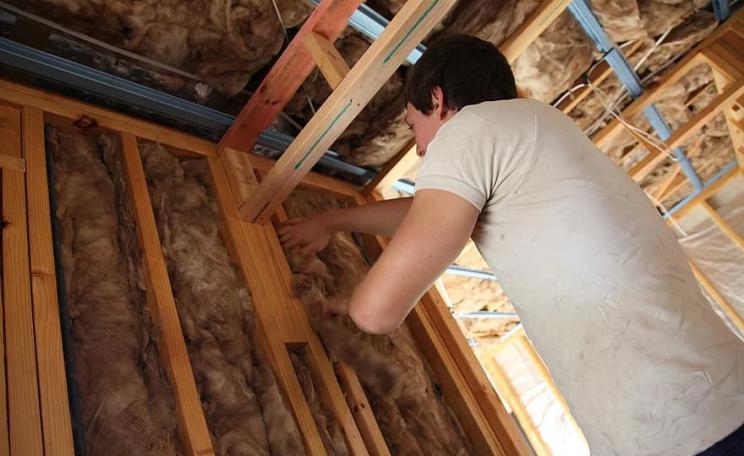According to research from Climate Action Tracker, if every country across the globe adopted the highest standards, energy demand would decrease enough that 1,000 coal-fired power plants could close.
There are lots of ways to make your home more energy-efficient, from adding more insulation to buying new appliances. Actions such as these reduce your energy use and save you money on your bills, but does it really make a difference for the climate? Recent reports suggest that it very well could.
A recent report from the Natural Resources Defense Council (NRDC) and a group called Energy and Environmental Economics identified residential energy efficiency as the largest source of carbon dioxide (CO2) equivalent emissions from a single intervention. According to the study, it could contribute 550 million metric tons of CO2 equivalent emissions reductions each year by 2050.
Many countries already require homebuilders to follow building codes that promote energy efficiency. According to research from Climate Action Tracker, if every country across the globe adopted the highest standards, energy demand would decrease enough that 1,000 coal-fired power plants could close. The study used the average size of coal plants, around 600 megawatts, to determine how many could close.
Cost savings
The report then goes a step further and says that if the remaining electricity demand were met with low-carbon electricity production, then total emissions from buildings would decrease by 60 percent by 2030. That amounts to 5.2 gigatons of carbon dioxide.
According to the NRDC, energy efficiency is one of the fastest and most economical ways to address ongoing energy challenges. A primary benefit of the efficiency approach is that it involves using the generation resources we have, rather than investing in new resources.
Because you don't need to build extensive new infrastructure, the time required to see results is less compared to other methods. Because it reduces the amount of energy you need to get the same results, it produces financial savings instead of costs. These economic benefits provide a natural incentive to use power more efficiently and make it an easier sell than other more expensive routes.
According to research from Climate Action Tracker, if every country across the globe adopted the highest standards, energy demand would decrease enough that 1,000 coal-fired power plants could close.
These economic apply on a broad scale as well as to individual households that implement energy efficiency measures.
The savings from improved efficiency are especially valuable to low-income households who sometimes spend 20 percent of their income on electricity and heating, as compared to the U.S. household average of 2.7 percent. Low-income communities are also likely to be hardest hit by the impacts of climate change, such as increasingly frequent and intense storms.
Significant decrease
While home energy efficiency upgrades eventually pay for themselves and upfront costs are less than with other approaches to reducing climate impacts, they do require an initial investment that low-income families may not be able to afford. Because of this, grants, non-profit work and other forms of assistance that help low-income families make their homes more efficient are critical to increasing energy efficiency and helping families live more comfortably.
While energy efficiency has many benefits, not all efficiency upgrades are equal when it comes to the climate. The climate impact of reducing energy usage depends on how that energy is generated. If you get your energy from fossil fuels, which emit CO2, improved efficiency will significantly reduce your emissions.
If you get your electricity from non-carbon-emitting sources like solar, wind or nuclear, however, it will not make much of a difference. In fact, if you generate your own solar and send the excess to the grid, for instance, you will reduce the amount of clean energy on that grid. Utilities may have to replace that electricity with power from a fossil fuel plant.
You also need to consider the type of building and climate you live in since these factors affect which energy efficiency measures will make the most impact for you.
If you take the time to consider all of these factors, however, and implement energy efficiency measures properly, you could see a significant decrease in your impact on the climate.
This Author
Emily Folk is a conservation and sustainability writer and the editor of Conservation Folks.







